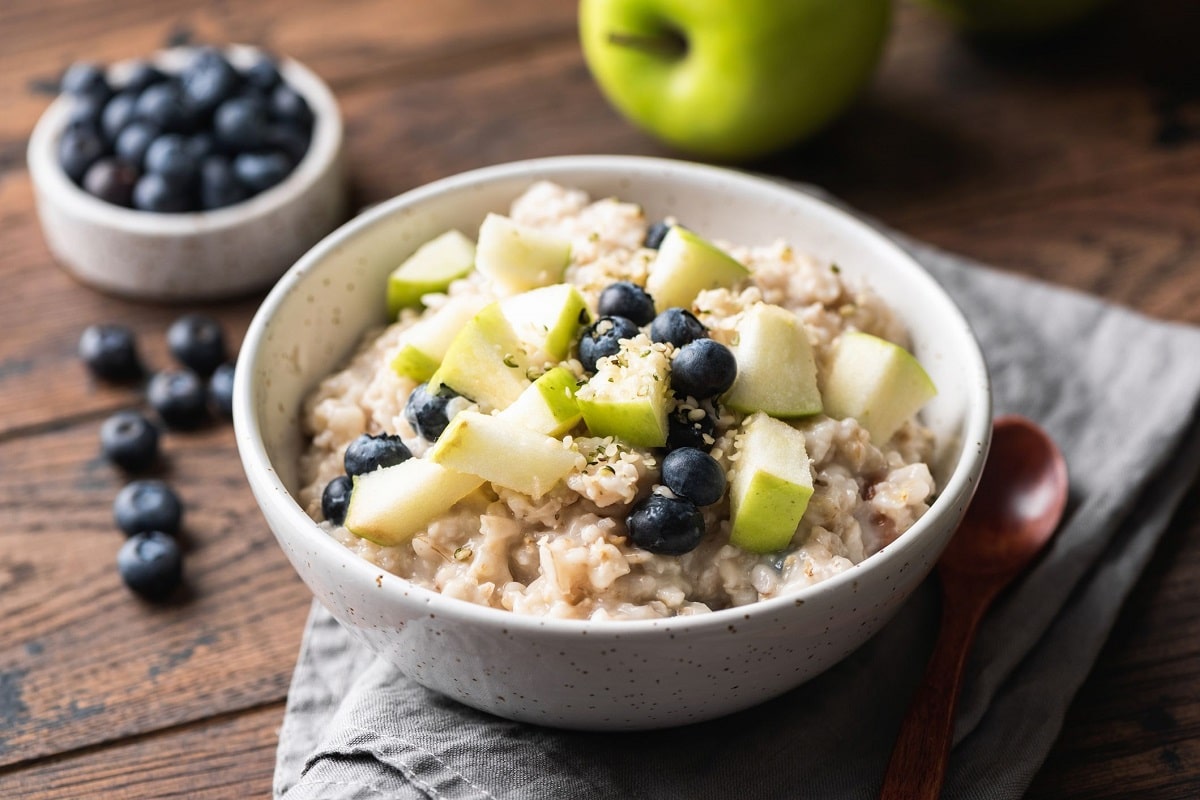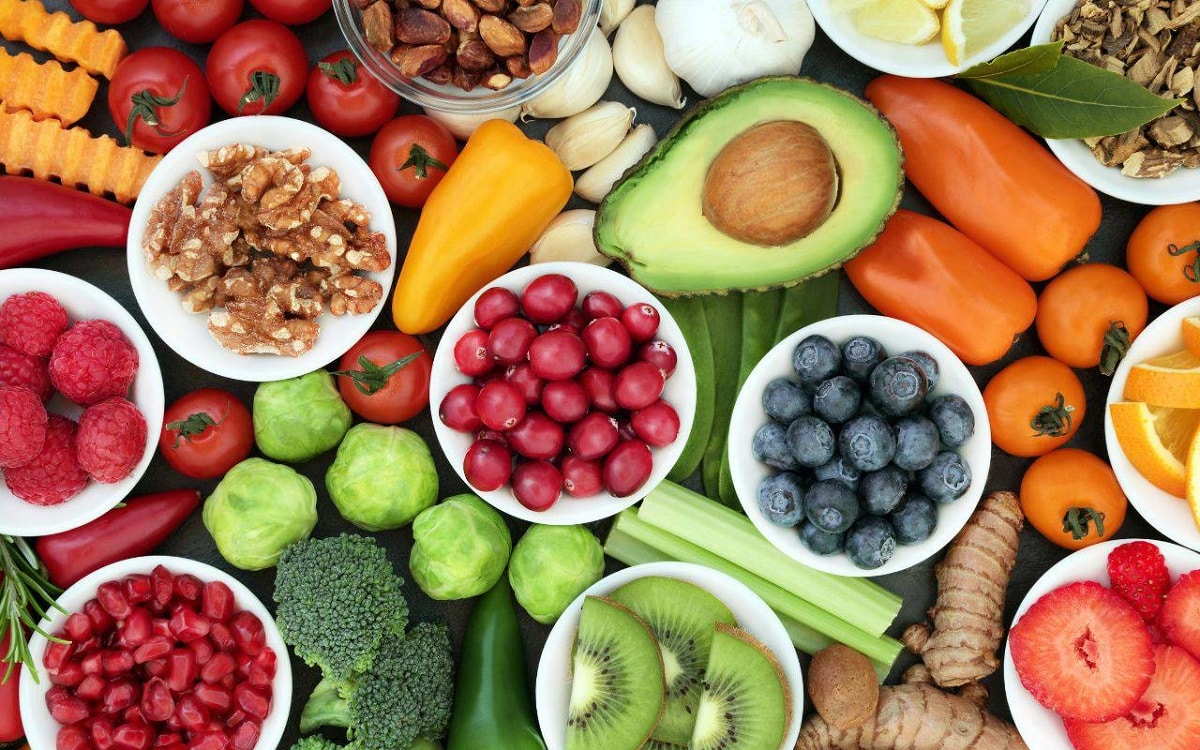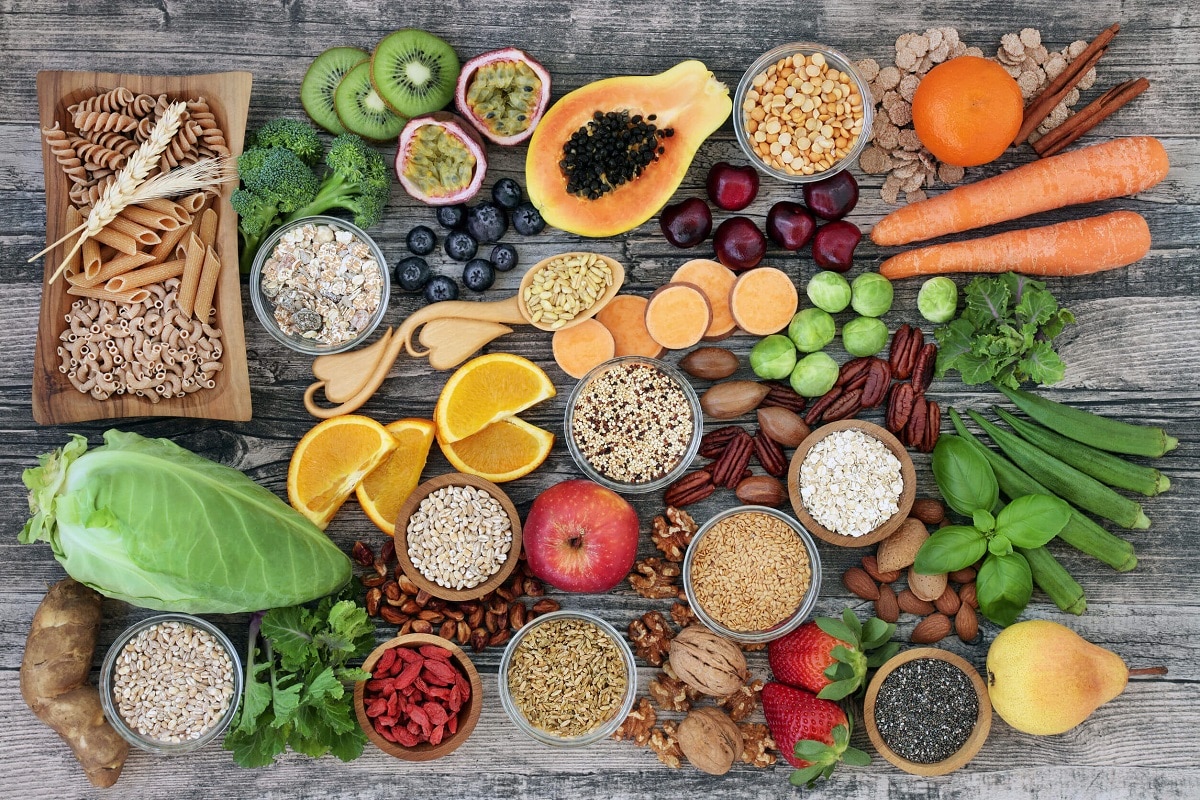
Constipation is a common disorder that affects many people at different times in their lives. It is characterized by the difficulty to evacuate regularly and the sensation of hard and dry stools. Although it can be frustrating and annoying, understanding the possible causes of constipation can help us prevent and manage it properly. Therefore, it is essential to know fiber foods for constipation because they can help eliminate it.
In this article we are going to tell you which are the best foods with fiber for constipation and what are the causes of it.
Causes of constipation

One of the most common causes of constipation is a diet low in fiber. Fiber is an essential component for the proper functioning of the digestive system, since it helps soften stools and promotes bowel movement. If our diet lacks high-fiber foods, such as fruits, vegetables, whole grains, and legumes, we are more likely to experience constipation.
Lack of physical activity can also contribute to constipation. Regular exercise stimulates a bowel movement by increasing blood flow to the abdominal area and promoting muscle contraction. If we lead a sedentary life and do not move enough, we may experience a decrease in the frequency of bowel movements.
Inadequate hydration plays a role in the development of constipation. Water is essential to keep stool soft and facilitate its passage through the intestine. If we do not consume enough liquid, especially water, it is more likely that the stool becomes hard and difficult to pass.
In addition to lifestyle factors, certain medical conditions and medications can contribute to constipation. Some diseases of the digestive system, such as irritable bowel syndrome, Parkinson's disease, and hypothyroidism, can slow intestinal transit and cause constipation. Also, some medications, such as opioids, antidepressants, and antacids that contain calcium or aluminum, can have side effects, including constipation.
Stress and changes in the daily routine can also affect the functioning of the digestive system and lead to constipation. Stress can upset the balance of intestinal hormones and affect intestinal motility. In addition, traveling or changing schedules can interfere with regular bowel habits and cause irregularities in intestinal transit. It is very common on a multi-day trip to be constipated.
Fiber foods for constipation

We can find significant amounts of fiber in a variety of natural foods:
- Lentils, chickpeas, white beans.
- Leeks, celery, beans, asparagus, borage, cauliflower, potatoes, sweet potatoes, green beans, fresh peas, squash, zucchini, peppers, eggplant, cucumbers, tomatoes.
- Salad leaves. Lettuce, spinach, watercress, beets, artichokes (raw hearts), chicory.
- Whole wheat, rye or flaxseed bread.
- Kiwis, plums (fresh or dried), figs, grapes (or raisins), oranges, peaches, dried apricots, apples, or other tart apples.
- Almonds, walnuts, pistachios, pine nuts, flaxseed.
- Hiziki, seaweed, wakame, nori, agar.
- Fermentation and probiotics. Yogurt, kefir, sauerkraut.
Importance of whole grains

For patients with constipation a daily fiber supplement of 25-30 grams has long been recommended. This measure is most effective for people who follow a low-fiber diet, as long as they do not lack colonic motility or suffer from pelvic floor diseases.
When using high-fiber foods to gain weight, the usual recommendation is to eat half a cup of whole grains, increasing the dose to one and a half cups after a few weeks. Whole corn is more potent than whole wheat, while whole oats are less tough and absorb fat better.
For best results, adequate amounts of liquid should be taken with grains. On the other hand, instead of taking wheat bran, use wholemeal bread made with sourdough. This facilitates intestinal transit without impeding the absorption of calcium and iron produced from bran phytates, since fermentation with said yeast converts these phytates.
Other foods with fiber for constipation
Here we have other foods with fiber for constipation:
- Olives: Providing 2,6 grams per 100 units, they also contain bacteria from the Lactobacillus plantarum family, probiotics that help regulate intestinal transit.
- Artichoke: Not only does it provide fiber, but it also contains a substance called inulin, which favors the growth of bacterial flora, which can help combat constipation.
- Dehydrated fruit: They are very effective for going to the bathroom because of their high fiber content. Prunes contain the highest amount of fiber, with 15 grams per 100 grams of prunes.
- Nuts: They are foods rich in fiber, especially almonds, which provide 3,4 grams of fiber for every 25 grams of product.
- Flax: They contain mucus and pectin that soften the intestinal lining and thus regulate intestinal transit. You must crush and chew them well, being able to take a tablespoon after breakfast and another after dinner, always with a glass of water.
- Oatmeal: In addition to having a laxative effect, it can also help us lower cholesterol levels. To enjoy its benefits, you only need to take 40 grams per day.
Tips and tricks
Apart from the basic advice on how to include these foods with fiber in your diet, we are going to give you some more advice:
- Drink enough water: Staying hydrated is essential for a healthy digestive system. Drink at least 8 glasses of water a day to ensure that your stool does not become hard and difficult to pass.
- Maintain an active lifestyle: Exercise regularly to stimulate bowel movement. Walking, running, swimming, or yoga are activities that can help promote healthy digestion.
- Don't ignore the need to evacuate: When you feel the need to go to the bathroom, don't let it go. Ignoring the urge to have a bowel movement can cause the stool to become harder and make it difficult to eliminate.
- Take care of your routine: Try to keep a regular routine when it comes to eating and going to the bathroom. Establishing a regular time for bowel movements can help train your body and promote regular bowel movements.
I hope that with this information you can learn more about fiber foods for constipation and how to avoid it.